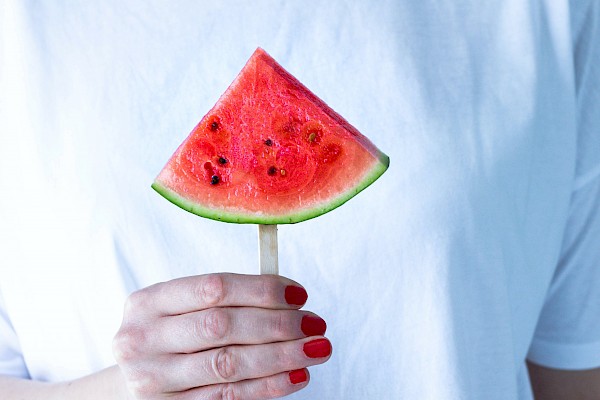Coffee
Did you know that coffee is Switzerland’s most important export commodity, even before cheese or chocolate? Approximately 70-80% of world trade in green coffee is handled via Switzerland. And the Swiss people love coffee too. We are third in the world at drinking coffee, behind Norway and Germany. Specifically, we in Switzerland drank 1093 cups of coffee per person in 2017. That is really rather a lot. But what does coffee contain and how much of it is healthy?
What’s in my coffee?
Coffee beans are the roasted seeds of the coffee bush. They contain alkaloids (e.g., caffeine), chlorogenic acid, vitamins, minerals, coffee oil, bitter substances and flavourings. Caffeine, more than anything else, is responsible for the effect of coffee. It keeps us awake, lifts the mood and boosts drive and concentration. However, too much caffeine can trigger symptoms such as restlessness, palpitations, anxiety, stomach problems or nausea, which will, however, disappear as soon as the caffeine has been eliminated from the body.
Caffeine is a poison and protects the plant from being eaten by insects. That’s why it can also be dangerous for us too. But there’s no need to worry – a healthy adult would need to consume around ten grams of caffeine, or 330 espressos, to get a fatal dose. As unpleasant symptoms (see above) often arise much sooner, coffee is hardly ever misused or abused.
How much coffee can I drink?
A healthy adult can safely consume 300-400mg caffeine per day – or approximately four cups of coffee. Many researchers recommend a maximum intake of 3-5 (250ml) cups per day. You should, however, enjoy coffee in moderation, because caffeine content varies depending on the type of bean and how it is processed. In addition, you shouldn’t forget that other foods also contain caffeine – for example, a 100g-bar of dark chocolate contains 90mg caffeine. An energy drink (250ml) or black tea (150ml) contain 80mg or 50mg caffeine respectively.
If you are pregnant, you are recommended to reduce your caffeine intake somewhat and not consume more than 200mg caffeine per day. It is accepted that a high caffeine intake during pregnancy is associated with a lower birth weight, premature births and miscarriages or stillbirths. There are also special recommendations for children and young people, who are often more sensitive to caffeine, with undesirable effects like hyperactivity or sleep disorders occurring more quickly. However, they mostly consume caffeine by drinking energy drinks rather than coffee.
How quickly does coffee work and how long does the effect last?
You need to wait a little while after drinking coffee to experience the maximum effect. It appears only 30-45 minutes after the caffeine has been absorbed by the digestive tract and must then spread around the body, which will need several hours to break the caffeine down. Caffeine has a half-life of 3-5 hours. As is so often the case, coffee affects everyone differently. You are therefore not guaran-teed an energy boost just because you drink coffee.
Coffee myths – what’s true and what’s false?
1. Coffee dehydrates the body
"Coffee does not dehydrate the body. If it did, I would have been dust long ago.”
- Franz Kafka -
Was Franz Kafka right? Yes. It is not true that coffee removes water from the body. However, the caffeine in coffee stimulates kidney function and thus increases urination. As a result, you may need to go to the toilet more quickly and more often. However, fluid loss is no higher than when you drink other beverages.
2. Coffee is addictive
False. If you regularly drink coffee, your body will get used to the caffeine supply. If you then suddenly stop consuming caffeine, you may suffer from headaches, irritability or fatigue. However, these symptoms will fade away after a few days. The World Health Organisation (WHO) also does not categorise caffeine as an addictive drug, because you do not release dopamine when you consume it, as is the case with drugs such as cocaine. Nevertheless, coffee is a stimulant and ‘consume in moderation’ definitely applies here. If you notice that your response to drinking coffee is nervousness, or you start sweating or even experience heart palpitations, you should reduce your consumption or stop it entirely, or switch to caffeine-free (e.g., decaffeinated coffee or cereal coffee) instead.
3. Coffee wakes you up
This myth is also not quite true. Coffee doesn’t wake you up but rather keeps you awake, because coffee docks at the same brain receptors as the messenger substances that make you tired. This is how it stops you from becoming tired.
4. Coffee stains your teeth and gives you caries
Yes and no. Coffee clearly can stain your teeth. As the tooth surfaces have little grooves, pigments can get stuck in them. Foodstuffs like red wine or tea can also cause these stains. However, it is not correct to say that coffee causes caries, unless you add sugar or artificial sweeteners to your coffee – these can damage your teeth and result in caries formation.
5. Coffee is carcinogenic
For a long time, only negative properties were ascribed to coffee. We used to believe that coffee made us ill. Today we know that a healthy intake (i.e., in moderation) can even have health-boosting effects. The myth that coffee is carcinogenic is just that – a myth. Studies have also shown that coffee consumption is associated with a lower risk of cancer or other diseases (e.g., metabolic or liver conditions).
So should everyone drink coffee?
No. It is of course not a problem if you drink no coffee at all. Not everyone likes coffee and not everyone tolerates it that well. If you don’t drink coffee, this won’t disadvantage you. Despite all the possible positive effects, coffee remains a stimulant and should only be consumed in healthy moderation.
References:
Ulich, E. (2011). Fakten, Fakten, die Schweiz und der Kaffee. Crema Magazin Schweiz. 48-51.
Kühn, D. (2019, 08. Juli). Wir klären über die Kaffee-Mythen auf. Schweizer Illustrierte. https://www.schweizer-illustrierte.ch/body-health/food/wir-klaren-uber-die-kaffee-mythen-auf PharmaWiki. (2021).
Kaffee. PharmaWiki Medikamente und Gesundheit. https://www.pharmawiki.ch/wiki/index.php?wiki=kaffee
Poole, R., Kennedy, O. J., Roderick, P., Fallowfield, J. A., Hayes, P. C., & Parkes, J. (2017). Coffee consumption and health: umbrella review of meta-analyses of multiple health outcomes. BMJ, 359.
Schweizer Radio und Fernsehen. (2017, November). Kaffeeland Schweiz – Täglich fast drei Tassen – und am liebsten einen Café crème. https://www.srf.ch/news/schweiz/kaffeeland-schweiz-taeglich-fast-drei-tassen-und-am-liebsten-einen-cafe-creme
Sohmer, V. (2021, 24. Februar). 10 Fakten zu Kaffee. Beobachter Gesundheit. https://www.beobachter.ch/gesundheit/ernahrung-genuss/koffein-10-fakten-zu-kaffee
 subscribe to newsletter
subscribe to newsletter


